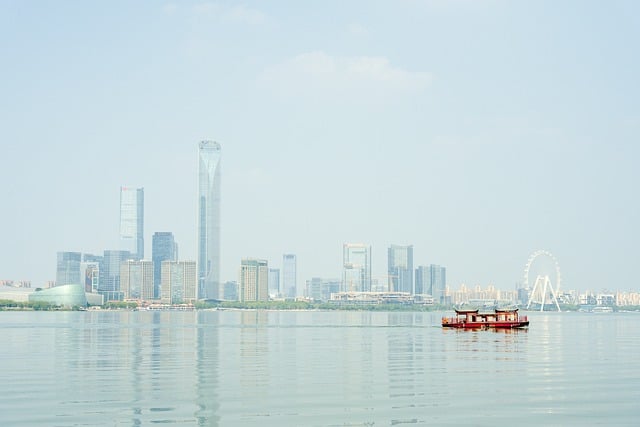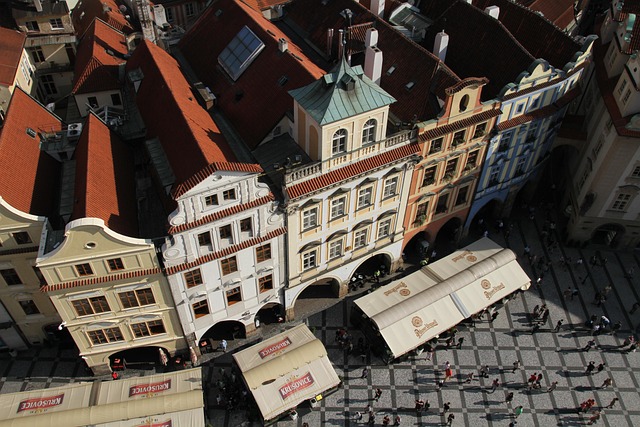
The Karachi Metropolitan Corporation (KMC) governs Pakistan's bustling karachi, managing vital services like sanitation, urban planning, and water supply over an expansive 3,500 sq. km area. It tackles challenges of rapid urbanization, aiming to enhance the city's livability through infrastructure upgrades, smart technologies, and community engagement while fostering karachi's economic growth and cultural center status.
“Karachi, Pakistan’s economic powerhouse, is governed by the Karachi Metropolitan Corporation (KMC), a vital institution shaping the city’s landscape. This article explores the multifaceted role of KMC in Karachi’s governance, delving into its jurisdiction, responsibilities, and services. We examine the geographic extent of KMC’s authority, highlighting the challenges it faces while managing urban growth. Furthermore, we discuss future prospects, offering insights into how KMC can continue to drive sustainable development in Pakistan’s bustling metropolis.”
- Understanding KMC's Role in Karachi's Governance
- The Geographic Extent of KMC's Jurisdiction
- Key Responsibilities and Services Provided by KMC
- Challenges and Future Prospects of KMC in Urban Management
Understanding KMC's Role in Karachi's Governance

The Karachi Metropolitan Corporation (KMC) plays a pivotal role in governing Karachi, Pakistan’s economic hub and most populous city. Its jurisdiction encompasses a vast urban landscape, where millions of residents rely on its services and infrastructure. KMC is responsible for maintaining the city’s sanitation, waste management, and water supply, ensuring these essential services reach every corner of this bustling metropolis.
Moreover, KMC contributes to Karachi’s overall development by managing public health facilities, planning urban growth, and overseeing various civic amenities. Its decisions shape the city’s physical landscape, from constructing new parks and roads to implementing sustainable practices. Understanding KMC’s role is crucial for comprehending the governance structure of Karachi, as it navigates the challenges of rapid urbanization and strives to enhance the quality of life for its diverse citizens.
The Geographic Extent of KMC's Jurisdiction

The Karachi Metropolitan Corporation (KMC) is responsible for governing and managing one of Pakistan’s most vibrant and densely populated cities, Karachi. In terms of geographic extent, KMC’s jurisdiction covers a vast area within Sindh Province. Encompassing over 3,500 square kilometers, this region includes not only the bustling city center but also its surrounding suburbs and rural areas. The corporation’s reach stretches from the Arabian Sea in the south to the borders of Sindh’s other districts in the north, east, and west. This expansive territory presents both challenges and opportunities for KMC as it strives to provide effective services and infrastructure to a diverse population.
Within this jurisdiction, Karachi stands out as a major commercial hub and cultural center, attracting folks from all corners of Pakistan and beyond. The city’s dynamic landscape, with its labyrinthine alleys, bustling markets, and modern skyscrapers, reflects the complex tapestry of its inhabitants. As KMC navigates this vibrant yet diverse terrain, it plays a crucial role in shaping the city’s future, ensuring sustainable growth, and addressing the needs of its ever-evolving population.
Key Responsibilities and Services Provided by KMC

The Karachi Metropolitan Corporation (KMC) is responsible for governing and providing essential services to the vibrant city of Karachi, Pakistan’s financial hub. Its key responsibilities encompass urban planning and development, ensuring efficient infrastructure management, and delivering a range of public services. KMC plays a pivotal role in maintaining the health and safety of the city by managing solid waste disposal, sanitation, and water supply systems.
Additionally, they oversee the maintenance and development of public spaces, parks, and green areas; provide civil defense and emergency response services; and facilitate urban transport through traffic management and road maintenance. KMC’s efforts are crucial in promoting a clean, safe, and livable environment for the diverse population of Karachi, contributing to the city’s overall growth and sustainability.
Challenges and Future Prospects of KMC in Urban Management

Karachi, as Pakistan’s economic hub, faces unique challenges in urban management due to its rapid growth and complex demographics. The Karachi Metropolitan Corporation (KMC) navigates a labyrinthine web of issues, including inadequate infrastructure, pollution, and overcrowded public spaces. These problems are further exacerbated by the city’s vibrant yet chaotic nature, where informal settlements and bustling marketplaces coexist with modern skyscrapers.
Looking ahead, the future prospects of KMC in urban management rest on innovative strategies to address these challenges. This involves enhancing infrastructural development, implementing stricter environmental regulations, and promoting smart city initiatives to streamline services. By leveraging technology, improving governance, and fostering community engagement, KMC can transform Karachi into a more livable, sustainable, and inclusive metropolis.
Karachi’s Municipal Corporation (KMC) plays a pivotal role in shaping the city’s future. By understanding its jurisdiction, responsibilities, and challenges, we can appreciate the immense impact it has on the urban landscape of Karachi. As the city continues to grow, KMC’s ability to adapt and enhance its services will be crucial for effective urban management. Navigating these prospects is essential to ensure a sustainable and vibrant Karachi for years to come.



